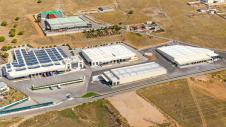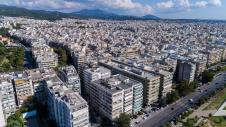The profile of foreign investors buying property in Greece has changed with a growing number of long term players taking the position of speculators. This indicates that the recovery of the country's property sector is picking up, attracting investors with a steady position in the market rather than those looking for a quick gain, who often artificially inflate prices.
According to lawyers and property agents, more foreign investors have been taking a long term stance on Greek property in recent months in a bid to secure a long term income. Up until recently, the majority of investors had a short term horizon chasing after cheaper easy to sell assets.
Speculators normally look to buy an apartment as cheap as possible, renovate it and then sell it, mainly to other foreign investors at a significant profit. They target non-EU investors drawn to Greece by the country's investment-for-residency scheme, known as the Golden Visa. Investors who acquire a property in order to obtain the five-year residency permit are required to hold onto it in order for the residency permit to be valid.
Those looking for a quick profit were drawn to Greece for two reasons. Firstly, apartment prices in Athens, where investment has mostly focused in recent years, were considerably lower than in other European capitals, particularly in older assets. Secondly, the investment risk speculators took on was limited due to the sharp rise in Airbnb related services.
These short term rental platforms provided extra security to investors, in the event that they could not sell the house for the profit they were looking for until prices rebounded. This is the main reason why 70-80 percent of foreign investors, up until now, did not spend more than 70,000 euros to 80,000 euros on investing in property.
This trend appears to be weakening as prices have rebounded in the last 18 months. In the center of Athens, prices gave jumped by an average of 50 percent, making the task of buying, renovating and selling in an attempt to secure profits of around 15-30 percent, harder to achieve.









